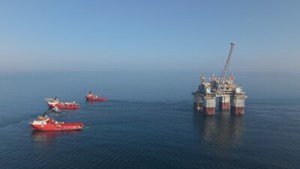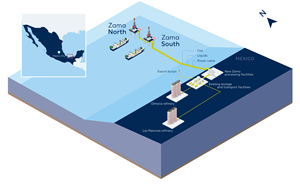(Bloomberg) — Nigeria’s President Bola Tinubu signed an executive order aimed at drawing investment in the oil sector by lowering project costs, while protecting government revenue as the West African nation looks to grow output.
Image: Shell
The new directive caps available tax credits at 20% of a company’s annual tax liability, and introduces a performance-based tax incentive for upstream operators, the president said in a statement late Thursday. Implementation guidelines are pending.
This is a “turning point — not just for cost efficiency, but for investor trust and sector-wide discipline,” Olu Verheijen, special adviser to the president on energy, said in response to questions. “We are using policy as a tool to drive performance, unlock capital and ensure our natural resources translate into real economic dividends for our citizens.”
The order builds on earlier reform directives to improve fiscal terms and shorten project timelines for investors, Bayo Onanuga, a spokesperson for the president, said in a text message.
Africa’s biggest crude producer introduced a policy framework last year with the aim of attracting as much as $10 billion of new investments in deep-water exploration through tax breaks and other measures. The policy was also expected to fast-track the development of natural gas, displace fossil fuels used for transportation and boost energy security.
Some oil majors including Shell Plc and Exxon Mobil Corp. have increased investment in Nigerian fields.
See also: Shell to buy TotalEnergies’ stake in Nigeria deepwater field for $510 million
Since assuming office in May 2023, Tinubu has implemented a series of reforms that he said have attracted more than $30 billion in foreign capital. The policy overhaul has been welcomed by investors from offshore and international observers, but crimped purchasing power in Africa’s most-populous country where nearly half of citizens live in extreme poverty.
This article was originally posted at www.worldoil.com



Be the first to comment